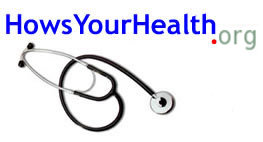
© 1997-2023 FNX Corporation and Trustees of Dartmouth College. All Rights Reserved.
CHAPTER 7: Menstruation
Contents
Each month the uterus (womb--the area in your belly where a baby grows) of a young woman grows a thick lining to support the growth of a baby. If the woman does not get pregnant, she looses the lining of her uterus. This is called menstruation.
Your menstrual period usually lasts about 5 to 7 days. At first the blood flow is heavy and then it gradually decreases. You may feel as if you are losing a lot of blood, however, it generally amounts to about 1/2 cup. (This is why you have to eat a lot of leafy green vegetables and some meat. If you don't eat meat, you may need to take iron pills.)
When Will I Get My Period?
Most young women start to menstruate between the ages of 9 and 16. During this time a small gland in your brain begins to send messages (called hormones) to different parts of your body. You may not start to menstruate until a year or two after you develop breast "buds" and pubic hair.
Most young women have a monthly period. Sometimes it takes a while for your period to become regular. You may want to keep track of your periods with a calendar. If you do this you may find that your cycle is any where from 23 to 35 days long. If you are not on a cycle and are very irregular, please talk to a nurse or doctor about it.
How Do I Prepare for Periods?
To plan for your period you can buy some sanitary napkins or pads that are worn inside your underwear to absorb blood flow. Some young women prefer tampons. Tampons are small tubes made of cotton that are inserted into the vagina to absorb blood flow. Some women choose tampons because when inserted properly they can't tell they are there. There is a small but increased risk of infection in women who use tampons. This serious problem can be avoided by changing tampons frequently-- usually at least several times a day.
Will I Act Differently?
Getting your period is normal. This is not a reason to stay home from school or from work. Some young women have cramps and aches in their abdomen or back. Sometimes a medicine called ibuprofen helps the cramps. (You don't need a prescription to get this medicine.) Others notice that their breasts are tender. Still others may gain weight or tend to have more pimples. Some women have no problems at all. Menstruation is a normal, healthy process.
What Causes a Missed Period?
Many factors affect menstruation. Women will not menstruate when they are pregnant. Strict dieting or heavy exercising may reduce periods.
Stress can also affect menstruation.
We have tried to make the How's Your Health error-free. However, those involved in its preparation can not warrant that all of the information is accurate and complete. When you use How's Your Health as a guide for your health and medical care, be sure to discuss any questions about it with your doctor, nurse, or other health care worker.
To choose another chapter, click the 'BACK' button.
Last reviewed: January 2023 © 1997-2023 FNX Corporation and Trustees of Dartmouth College. All Rights Reserved.